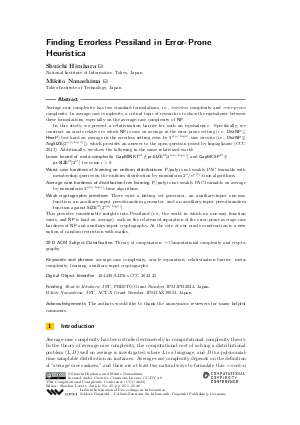LIPIcs.CCC.2022.25.pdf
- Filesize: 0.88 MB
- 28 pages

 Creative Commons Attribution 4.0 International license
Creative Commons Attribution 4.0 International license









































Feedback for Dagstuhl Publishing